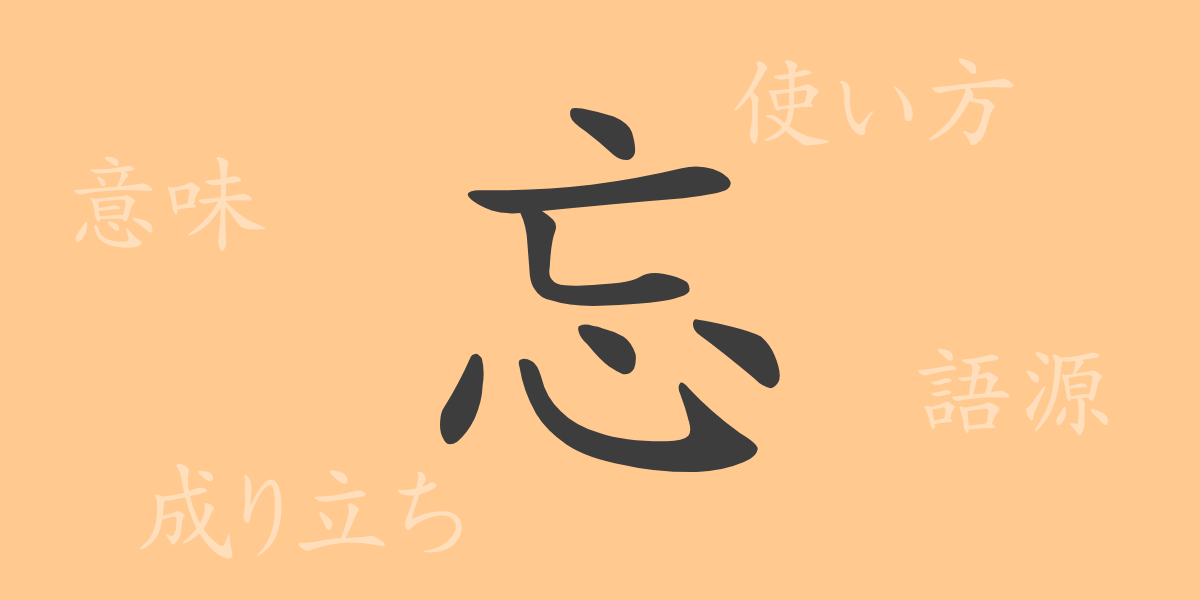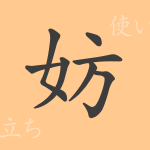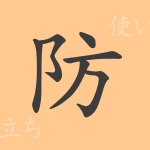In everyday life, forgetting is a natural phenomenon that can happen to anyone. However, the single kanji character “忘” (ぼう, bou) holds a profound history and culture beyond just the act of forgetting. In this article, we will spotlight the kanji “忘” (ぼう, bou), delving into its origins, modern usage, and unforgettable idioms and expressions that feature this character, uncovering its captivating charm.
Origins of “忘” (ぼう, bou)
The kanji “忘” (ぼう, bou) has evolved from ancient Chinese pictographs. It is composed of the radical “心” (こころ, kokoro), which represents the heart, and “亡” (ぼう, bou), which means to perish. Originally, it signified losing something from the heart, essentially meaning to forget. Over time, “忘” (ぼう, bou) has come to express the sense of forgetting or being forgotten.
Meaning and Usage of “忘” (ぼう, bou)
The primary meaning of “忘” (ぼう, bou) is “to forget” or “to lose from memory.” In Japanese, this kanji is used to create various words and expressions such as “忘れ物” (わすれもの, wasuremono – lost item) and “忘年会” (ぼうねんかい, bounenkai – year-end party). Additionally, the verb “忘れる” (わすれる, wasureru) can imply not only losing something from memory but also intentionally leaving something behind.
Reading, Stroke Count, and Radical of “忘” (ぼう, bou)
The kanji “忘” (ぼう, bou) has several characteristics:
- Reading: In On-yomi (音読み, on’yomi), it is read as “ボウ” (ぼう, bou), and in Kun-yomi (訓読み, kun’yomi), it is read as “わす.れる” (わすれる, wasureru).
- Stroke Count: It has a total of 7 strokes.
- Radical: The radical is “心部” (こころへん, kokorohen), which represents the heart.
Idioms, Expressions, and Proverbs Using “忘” (ぼう, bou)
Numerous idioms, expressions, and proverbs in Japanese feature the kanji “忘” (ぼう, bou). For instance, “忘却の彼方に” (ぼうきゃくのかなたに, boukyaku no kanata ni) describes something that has faded from memory over time, and “忘れ形見” (わすれがたみ, wasuregatami) refers to a child named in memory of a deceased person. “忘年会” (ぼうねんかい, bounenkai) signifies a year-end party held to forget the year’s hardships. These idioms and expressions reflect Japanese culture and people’s sentiments.
Conclusion about “忘” (ぼう, bou)
The meaning embedded in a single kanji character can serve as a mirror reflecting the culture and history of a country. Through the kanji “忘” (ぼう, bou), we can gain an opportunity to reconsider the importance of forgetting and the significant matters that should remain in memory. When you encounter words involving “忘” (ぼう, bou) in daily life, reflecting on their profound meanings can be a richly rewarding experience.

























